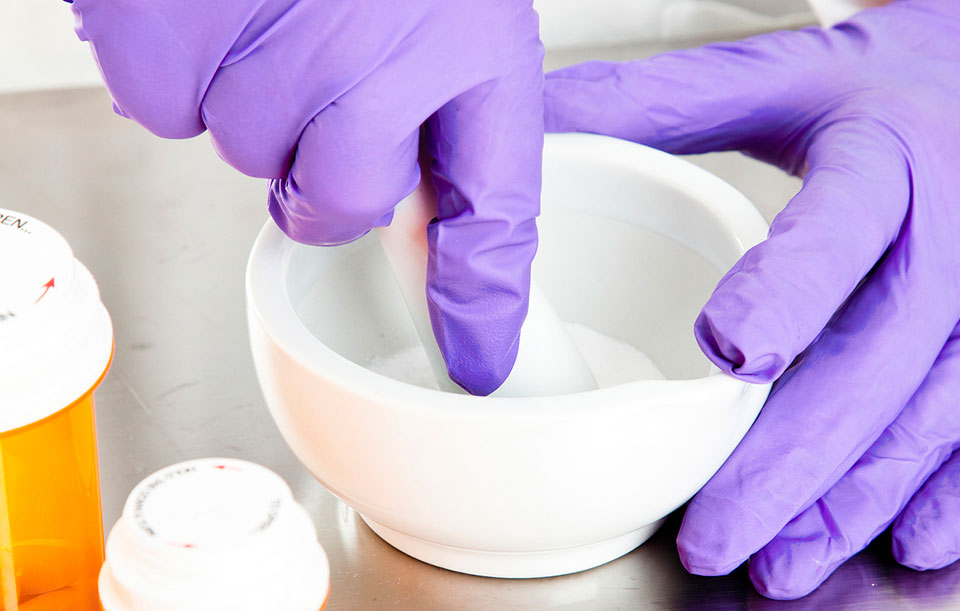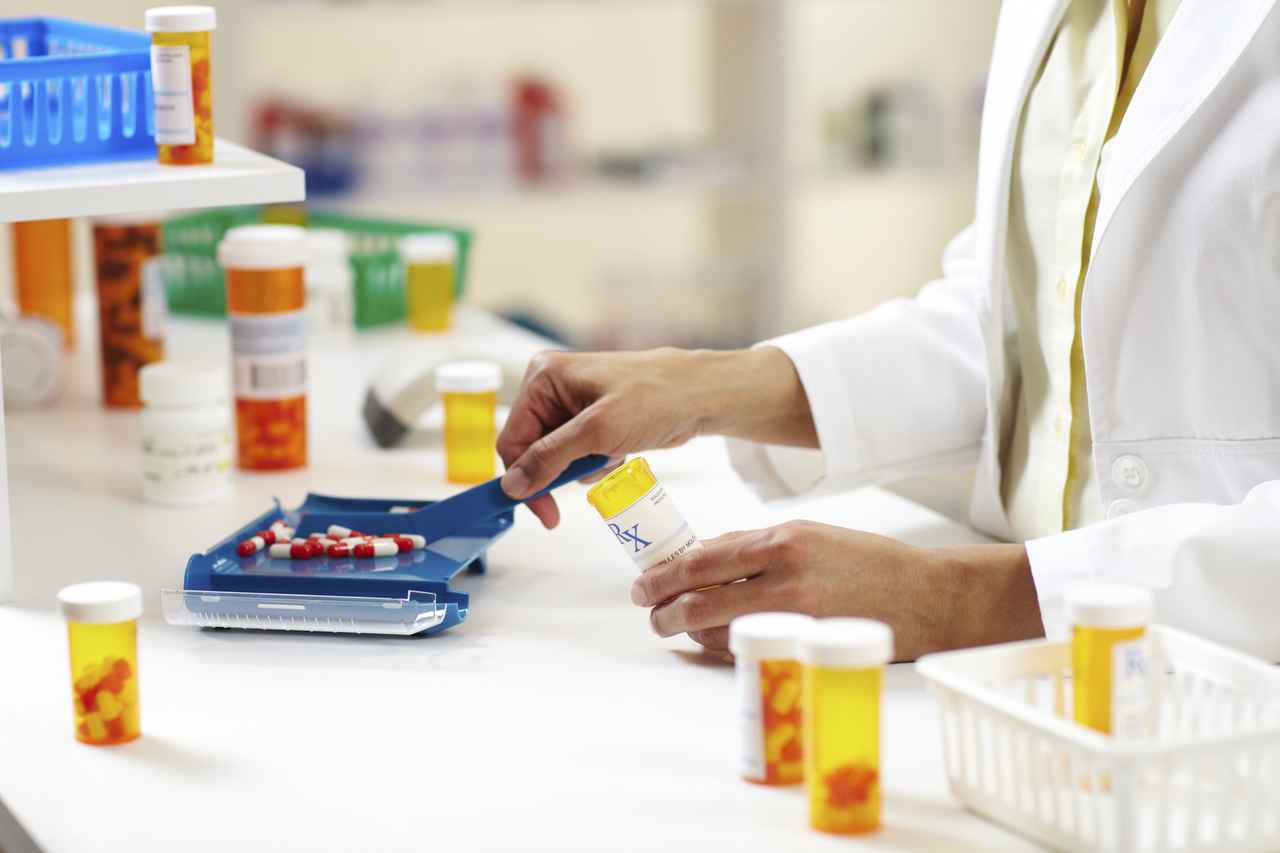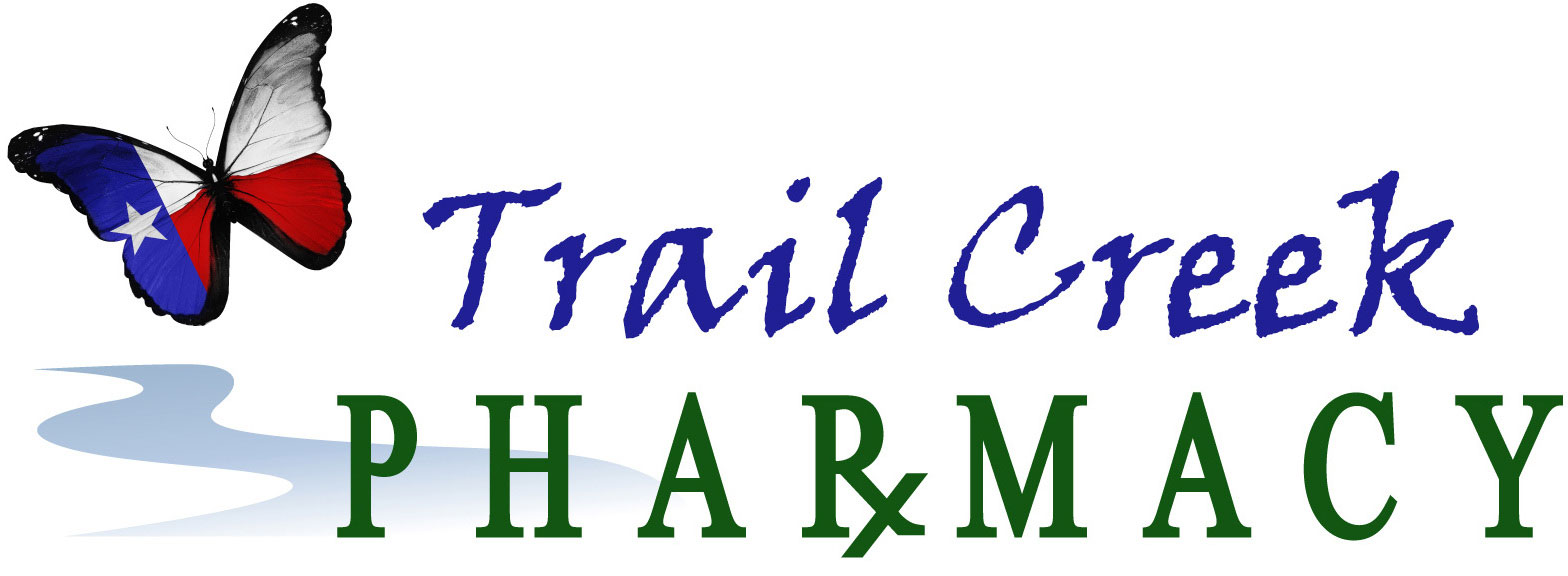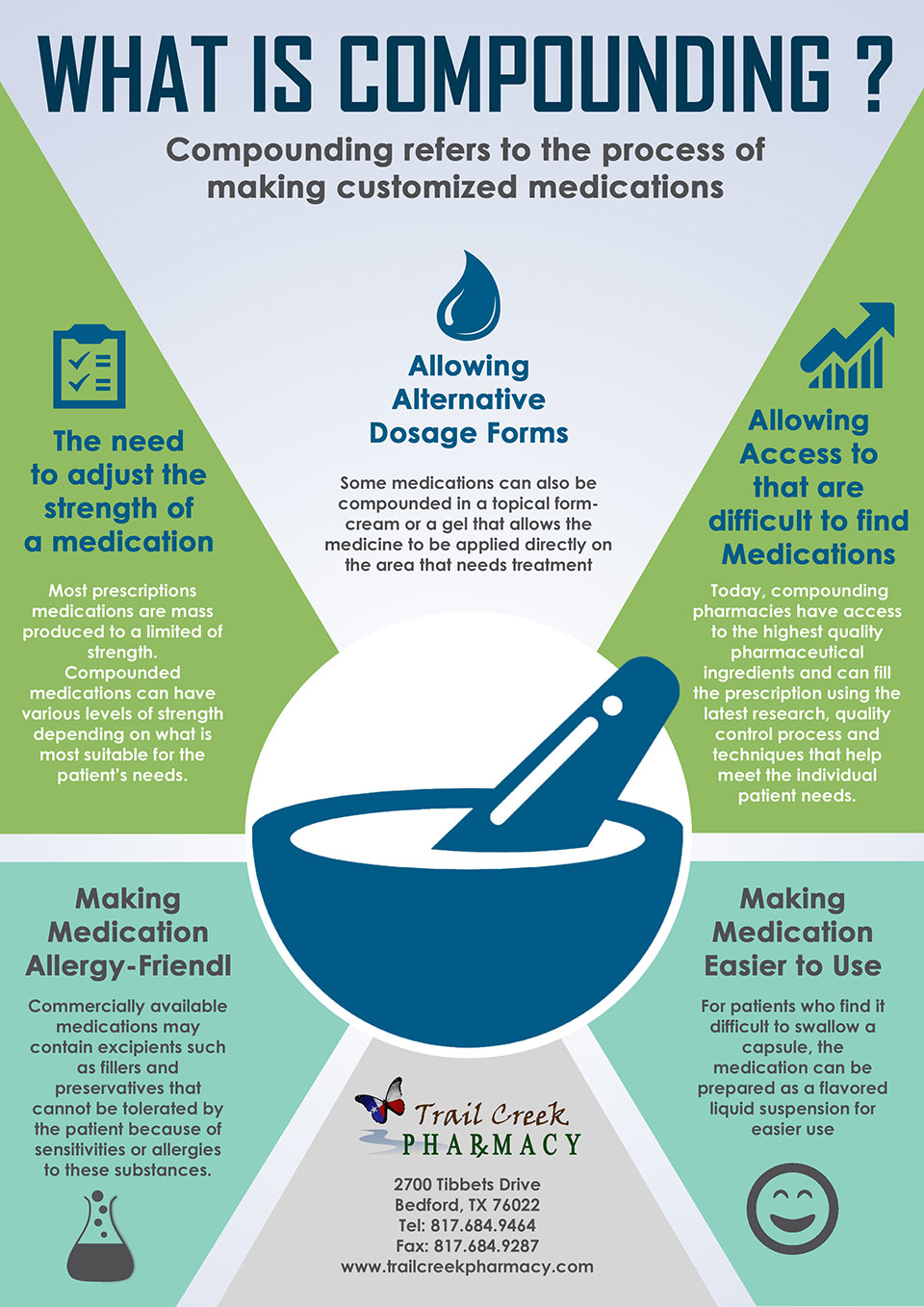Compounding
Pharmacy compounding is a long-established tradition that offers customized care to meet the specific needs of individual patients.
Have you ever wished your child’s medicine tasted better, so they would accept it without a fuss? Or struggled to cut a prescription tablet in half because the pill wasn’t manufactured in the strength you require? Perhaps an ill loved one could have benefited from having multiple medications combined into a single dose. Compounding pharmacists provide solutions to all these problems, and more.

What is compounding?
Pharmacy compounding is the art and science of preparing customized medications for patients. Its practice dates back to the origins of pharmacy, although compounding’s presence in the pharmacy profession has changed over the years. In the 1930s and 1940s, the majority of prescriptions were compounded. With the advent of mass drug manufacturing in the 1950s and ‘60s, compounding declined as the pharmacist’s role as a preparer of medications quickly changed to that of a dispenser of manufactured dosage forms. However, this “one-size-fits-all” approach to medication meant that some patients’ needs were not being met.
Within the last few decades, however, compounding has experienced a renaissance as modern technology and innovative techniques and research have allowed more pharmacists to customize medications to meet a patient’s unique needs.
Do Compounded Medications Require FDA Approval?
The FDA approval process is intended for mass-produced drugs made by manufacturers. Because compounded medications are personalized for individual patients, the federal government has approved the use of compounded medications for those individuals who have received a prescription for that specific compounded medication.
Pharmacies that compound medications must meet extensive regulatory guidelines that ensure patient safety. This includes abiding with tedious processes from start to finish in the compounding process.
How does compounding benefit me?
There are several reasons why prescribers and pharmacists provide compounded medications for patients. The primary reason for compounding is to avoid patient non-compliance, which means the patient is either unable or unwilling to use the medication as directed. Many patients are allergic to preservatives or dyes, or require a dosage that is different from the standard drug strengths.
With a physician’s consent, a compounding pharmacist can:
- Adjust the strength of a medication
- Avoid unwanted ingredients, such as dyes, preservative, lactose, gluten, or sugar.
- Add flavor to make the medication more palatable
- Prepare medications using unique delivery systems. For patients who find it difficult to swallow a capsule, a compounding pharmacist may prepare the drug as a flavored liquid suspension instead. Other medication forms include topical gels or creams that can be absorbed through the skin, suppositories, sublingual troches, or even lollipops.
Can my child – or my elderly parent – take compounded medication?
Yes! Children and the elderly are often the types of patients who benefit most from compounding. It is common for parents to have a tough time getting their children to take medicine because of the taste. A compounding pharmacist can work directly with the physician and the patient to select a flavoring agent, such as bubblegum, grape, tuttifrutti, or vanilla butternut, which provides both an appropriate match for the medication’s properties and the patient’s taste preferences. Just think – no more wasting medicine when a cranky patient spits it out!
Compounding pharmacists also can help patients who experience chronic pain. For example, some arthritic patients cannot take certain medications due to gastrointestinal side effects. With a healthcare practitioner’s prescription, a compounding pharmacist may be able to provide these patients’ anti-inflammatory or pain-relieving medications with topical preparations that can be absorbed through the skin. Compounded prescriptions frequently are used to ease pain, nausea, and other symptoms for hospice patients as well.
Is compounding legal? Is it safe?
Compounding has been part of healthcare since the origins of pharmacy, and is widely used today in all areas of the industry, from hospitals to nuclear medicine. Over the last few decades, compounding’s resurgence has benefited largely from advances in technology, quality control and research methodology. The Food and Drug Administration has stated that compounded prescriptions are both ethical and legal as long as they are prescribed by a licensed practitioner for a specific patient and compounded by a licensed pharmacy. In addition, compounding is regulated by state boards of pharmacy.
Will my insurance cover compounded medications?
Some insurance plans allow the patient to be reimbursed by sending in claim forms. While you may be paying a pharmacy directly for a compounded prescription, many insurance plans may cover the final cost.
If our pharmacy delivers these temperature sensitive medications to you, we will surely deliver it by a courier or ship it in temperature-controlled packaging.

Is compounding expensive?
Compounding may or may not cost more than conventional medication. Its cost depends on factors such as the type of ingredients and equipment required, plus the time the pharmacist spends researching and preparing the medication. Fortunately, compounding pharmacists have access to pure-grade quality chemicals which dramatically lower overall costs and allow them to be very competitive with commercially manufactured products.
What kinds of prescriptions can be compounded?
Almost any kind! Compounded prescriptions are ideal for any patient requiring unique dosages and/or delivery devices.
- Hormone replacement therapy (HRT)
- Hospice
- Pediatrics
- Pain management
- Ophthalmology
- Dentistry
- Otic (for the ear)
- Dermatology
- Medication flavoring
- Neuropathy
- Veterinary
- Sports medicine
- Infertility
- Wound therapy
- Podiatry
- Gastroenterology
- And many more!

